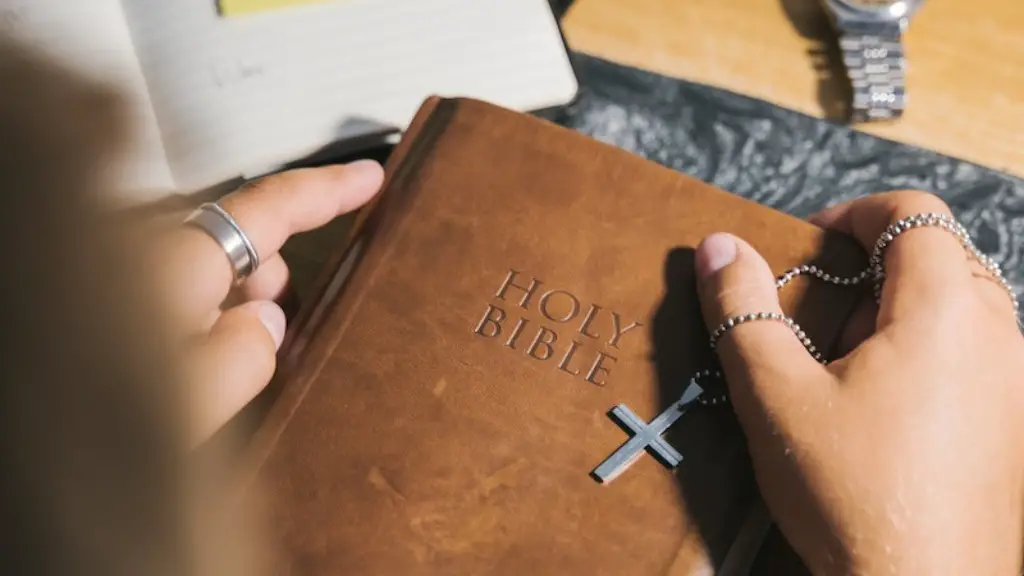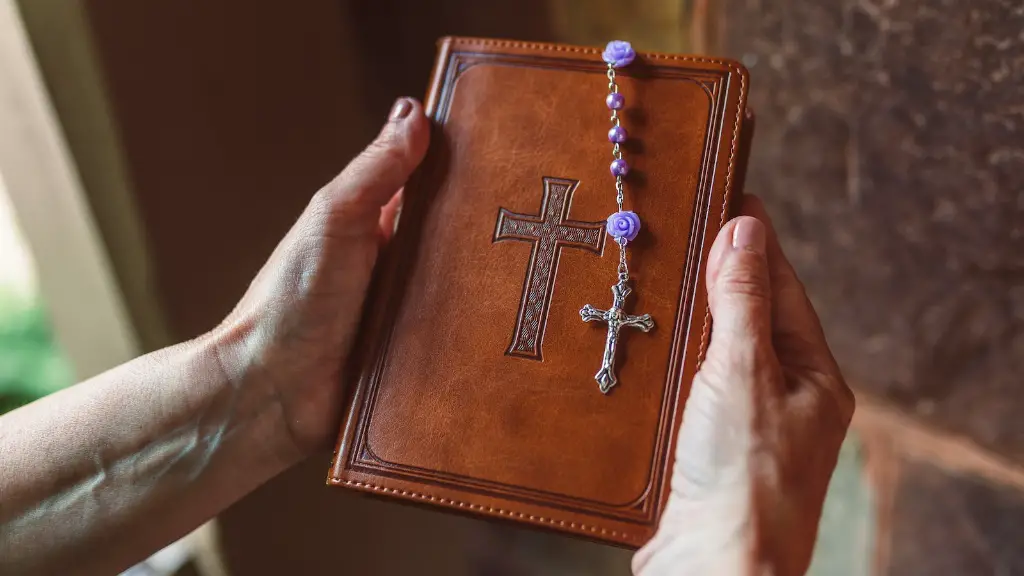Cremation has been gaining popularity in recent years as a economical, efficient and respectful method of dealing with the remains of the deceased. Many religious denominations, including Christianity, allow for the practice of cremation under certain circumstances. While some denominations view cremation as a viable alternative to a traditional burial, the implementation of this method of dealing with the dead is still largely debated within the church. This article will delve in to the question of whether the bible has anything to say about cremation.
To begin with, it is important to recognize that the bible does not outright condemn cremation as a valid way of treating a deceased person. The Bible mentions death in several passages, but it largely focuses on life after death and, most importantly, a resurrection. In this context, what happens to a dead body is of less relevance than the soul’s journey after death. This implies that the bible, while silent on cremation, ultimately doesn’t view it as a sin.
Further examination can be applied to some of the bible’s specific teachings. First, it is noted that the Bible emphasizes the importance of honoring and respecting the dead, regardless of personal beliefs. This is seen in Leviticus 19, which outlines the mandate for showing respect for those who have passed on. One way in which this is traditionally done is by burying the body of the deceased, although, as discussed previously, cremation is also accepted for those who practice it.
It is also true that in some early cultures, cremation was seen as a way of providing a dead person with a safer journey in the afterlife. This is an ancient tradition that is still practiced in some Hindu and Buddhist cultures today. The Bible, while not directly referring to the practice of cremation, does provide some suggestions that a period of mourning and respect should be observed when a person has died, a trait that is seen in cultures where cremation is practiced.
Finally, it is worth noting that cremation itself does not present any spiritual consequences for the deceased person, and there is no direct scriptural prohibition against it when considering the context in which it is used in some religious traditions. This means that the choice to cremate a body is ultimately left up to the individual and their beliefs, although it is important to acknowledge that this decision will vary depending on religion, culture and personal conviction.
Christian Views On Cremation
While the Bible does not explicitly state that cremation is wrong, many branches of Christianity still do not allow it. This is understood to be based on their view of the resurrection, which states that all bodies must come together and be united with their souls on judgment day, an event they believe will occur upon Christ’s return.
Furthermore, many denominations also have concerns about how cremation would impact the deceased person’s soul. This is due to famous passages from scripture such as 1 Corinthians 15:35-50, which states “we will also be changed” when the Lord returns. In essence, Christian denominations that advocate burial as a show of respect for the dead, see cremation as an obstacle to the resurrection.
In addition, many Christians also feel that the body is a temple and must be treated with respect. Cremation largely hinders this imperative since most denominations mandate that the body should be buried beneath the ground so that it can experience an eventual natural decomposition, just as it was created.
Why Cremation May Be Preferred
Despite the traditional views of some Christian denominations, some people prefer cremation in order to avoid the costly financial burden of purchasing a burial plot, casket and funeral. The cost of cremation is much lower than traditional burial and can be a viable choice for those who have limited financial resources.
Cremation is also more practical in certain situations. It is often favoured by people who live in places where land is scarce and a traditional burial may be difficult to accomplish. In some cases, cremation may also be significantly more convenient for those who live long distances from the family of the deceased or who want to dispose of the remains immediately.
Are There Religious Questions Of Cremation?
Though the Bible does not explicitly forbid the practice of cremation, there are still some religious questions surrounding the method of disposal. For example, the Old Testament repeatedly stresses that bodies should be buried and should not be left exposed, which can be interpreted as a condemnation of cremation. There is also some ambiguity in the New Testament, as Jesus himself was buried traditionally.
Some religious denominations, such as Orthodox and Catholic churches, are stricter in their opposition to cremation due to the belief that it denies the possibility of resurrection that is promised in Scripture. There are some denominations, however, that have embraced a different view of cremation and have begun to allow individuals to choose the method of disposal that they feel is most appropriate.
Environmental Implications
Cremation is also seen as better for the environment, since traditional burial can require the use of considerable amounts of land as well as the addition of embalming fluid which could potentially contaminate the soil in that area. Cremation does not require large areas of land and thus leaves much less of a carbon footprint in comparison to burying a body in a traditional cemetery.
It is also worth pointing out that cremation does not provide much of an opportunity for family and friends to pay their respects to the deceased. While funeral services may provide an emotional outlet due to the ceremonial nature of them, cremation is usually a fairly quick process and does not give family or friends the same level of closure.
Summary of Beliefs
In summary, the Bible does not provide an explicit answer to the question of whether cremation is allowed and it ultimately leaves the decision to individuals and their personal taste and beliefs. Cremation has undergone a large degree of acceptance among different religious denominations, largely due to its cost effectiveness, conveniences and environmental impact, but many Christian denominations still do not view the practice of cremation as a legitimate option.
Whether one believes that cremation should be practiced is ultimately up to them. While the Bible does not affirm or reject it, the important takeaway is that, whatever the chosen method of disposal is, respect for the deceased must always be upheld.
Does Cremation Have Any Spiritual Implications?
The spiritual implications of cremation are hotly debated within some Christian denominations and there is no definitive right or wrong answer in this regard. Nonetheless, it is believed by some Christian denominations that the practice of cremation is contrary to the doctrines of both the Old and New Testament and therefore should not be practiced.
This is based on the belief that all bodies must be united in the afterlife and thus should remain in their current state from the moment of their death. Others, however, see cremation as a way to honor a beloved deceased, by disposing of their body in the most dignified and respectful way possible. Still, for some Christian denominations, cremation and the disposal of a body in any way is seen as a barrier to the afterlife and thus forbidden.
Cremation Versus Burial
Finally, it is also important to consider how cremation stacks up against traditional burial. Cremation, while often presented as an affordable and convenient option, can be seen as a disrespectful way to treat a body, especially within certain cultures. In some cases, this may lead to difficult decisions and tensions among families who have differing opinions on the matter.
On the flip side, traditional burial allows for more of a ceremonious send-off and also ensures that the body is not destroyed by fire but instead will eventually take part in a natural decomposition cycle. Whether one opts for cremation or burial, respecting the deceased should always be the primary factor when making such a decision.





